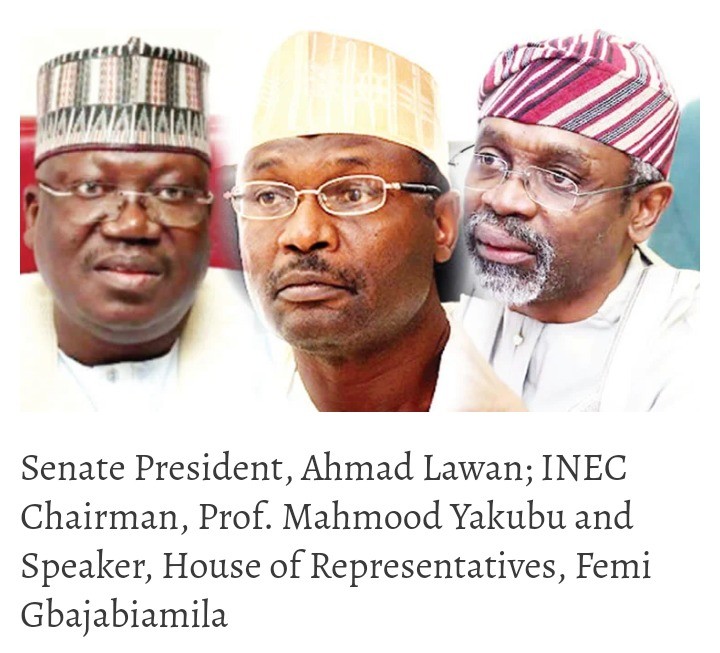|
Getting your Trinity Audio player ready...
|
THE Independent National Electoral Commission on Tuesday said it did not need the approval of the Nigerian Communications Commission to transmit election results electronically.
This was as the National Assembly told the Chairman of the Independent National Electoral Commission, Mahmood Yakubu, to seek proper legal advice instead of misinforming Nigerians on the independence of INEC to conduct elections.
INEC also said that the decision of the National Assembly to subject its constitutional power to conduct elections to the NCC was absolutely unconstitutional.
Recall during the debate on section 52 (3) of the Electoral Amendment Act Bill, dealing with electronic transmission by lawmakers, they had asked INEC to seek the approval of the NCC before going on with e-transmission of results.
READ ALSO: INEC redeploys five RECS four directors
But speaking at the third quarterly meeting of INEC with media executives in Abuja, the commission’s National Commissioner and Chairman (Electoral Operations and Logistic Committee), Prof. Okechukwu Ibeanu, said rather than seeking the approval of NCC, INEC had the constitutional mandate to impose duties on NCC in order to achieve the electronic transmission of results.
He said, “That is absolutely unconstitutional. You cannot ask INEC to seek the approval of another agency of government to transmit result electronically when actually INEC has power to impose duties on NCC to achieve electronic transmission of results.
“I completely agree that in the context of underscoring the independence of the commission, section 160 of the Constitution has done everything it needs to do. What is left is for INEC to use the power it has under the constitution to achieve it aim.”
Earlier, INEC Chairman, Prof. Mahmood Yakubu, said the newly introduced Bimodal Voter Accreditation System would replace the Smart Card Reader and Z-pad, adding that it would take care of the challenges of over-voting and double voting.
He also spoke on the Anambra State governorship election scheduled for November 6, saying, “In the next few days, the commission will compile the register of new voters and publish same throughout the state for claims and objections.”
Speaking on the independence of INEC to transmit results electronically, the Chairman, Senate Committee on Media and Public Affairs, Senator Ajibola Basiru, told The PUNCH on Tuesday that it would be proper for the chairman (of INEC) to seek proper legal advice on the interpretation of item 22 and Section 4 of the 1999 Constitution.
“INEC, in implementing the law, becomes independent pursuant to the constitutional provision. He (INEC chairman) should not muddle the independence of INEC with that of its agency’s operations, as to the legislative competence of the National Assembly to stipulate framework for elections.
“The INEC chairman does not seem to know the position of the law as to the constitutional power of INEC vis a vis the National Assembly from what he said. I will advise him to seek proper legal advice,” Basiru said.
We’ve always advocated electronic transfer of results – PDP
Reacting, the Peoples Democratic Party aligned itself with INEC’s position that the election management body did not require approval of the NCC to transfer election results electronically.
The National Publicity Secretary of the PDP, Kola Ologbondiyan, said this in a telephone interview with The PUNCH in Abuja on Tuesday.
He said, “The law establishing INEC gives it powers to set the template for the smooth conduct of elections; it was the same law it used to introduce the card reader which has improved our electoral system.”
Parties can’t dictate to INEC, says APC
When contacted, the National Secretary of the APC, Senator John Akpanudoedehe, said, “INEC is the regulator of political parties; political parties can’t tell it what to do. The APC, as you know, is a law-abiding party; we are always guided by the provisions of the law.”




